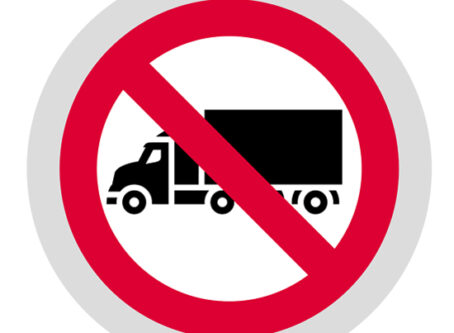$54M crash verdict upheld; driver’s extensive rap sheet cited
An Illinois appellate court upheld a multimillion dollar verdict in a truck crash lawsuit, which originally cited the trucker’s driving history as justification.
On Sept. 24, an Illinois state appellate court upheld a jury’s damages award of more than $54 million in a personal injury suit against Warren, Mich.-based trucking company Universal Am-Can over a crash that occurred in Jasper County, Ind. This was the second time the case made it to the appeals court.
A case of many crashes
In January 2010, David Lee Johnson applied to be a trucker for Universal. Even though he never completed a truck driving course, Johnson held a CDL issued in South Carolina.
Records reveal that Johnson was involved in four crashes within three years of applying to Universal. In addition to those crashes, Johnson also acquired three moving violations and had his license suspended twice. However, his application only listed two crashes, no moving violations and one license suspension.
Johnson was terminated from four out of seven previous jobs. Reasons included tailgating a motorist, felony conviction, too many points on license and crashing into a vehicle after refusing to let it merge onto a highway ramp.
Within seven years of applying to Universal, Johnson was convicted of nine traffic violations. Among those violations were speeding, disobeying a traffic device, failing to pay a speeding ticket, turning unlawfully, improperly parking and not wearing a seatbelt.
Johnson’s driving record also includes convictions of four counts of felony reckless aggravated assault in November 2004. Those charges stem from an attempt to break the headlights on a vehicle occupied by four women.
Based on the felony conviction alone, a safety coordinator for Universal denied Johnson’s application. However, Doug Moat, Universal’s safety director, considered the application anyway. Moat testified that Johnson was considered a “marginal candidate.” He conceded that Universal “was forced to accept ‘marginal drivers’ in order to make a profit,” according to court documents.
Despite testifying that Johnson’s felony conviction was in fact directly related to his job as a trucker and stating the he “never should have allowed to drive a (Universal) rig,” Moat still hired Johnson in February 2010.
Crash ‘waiting to happen’
In February 2011, Johnson was speeding in the left lane on a highway in Indiana while driving on a suspended license. Ahead of him, a motorist was driving the wrong way on the highway. A few other motorists managed to swerve out of the way. However, Johnson crashed into a Jeep in front of him occupied by James Denton. Consequently, the Jeep smashed into the fuel tank of another truck.
Denton survived the crash, but with serious injuries. He underwent nine surgeries, including one for a prosthetic metal knee. A spinal injury has forced Denton to regularly catheterize himself and wear adult diapers. He has been unable to work since the crash.
The subsequent lawsuit eventually attributed 40% of the blame to Johnson’s negligence. The remaining 60% was assigned to Universal for negligent hiring. A jury awarded Denton more than $54 million in damages, which was approved by the judge.
Universal appealed the case, which was remanded back for further proceedings. The appellate court required the lower court to hold more proceedings applying Indiana law to the issues of verdict damages, not Illinois. The main difference being distribution of liability of damage awards. The goal of the appeal was an attempt to put the wrong-way driver on the hook for some of the damages. However, the jury found that driver 0% at fault anyway.
After the remanded case did not go their way, Universal tried to argue in the latest appeal that by accepting vicarious liability for Johnson’s personal negligence in the crash, the company should be relieved of any additional liability, including negligent hiring and retention. The court rejected this second appeal argument.
Universal attempted to argue that Denton failed to show that Universal purposefully disregarded a known safety risk by hiring Johnson.
Denton’s attorneys counterargued that Johnson was the “proverbial accident waiting to happen.” The appellate court was not persuaded by Universal’s arguments.
The $54 million verdict was affirmed. Universal can still petition to the state Supreme Court.









